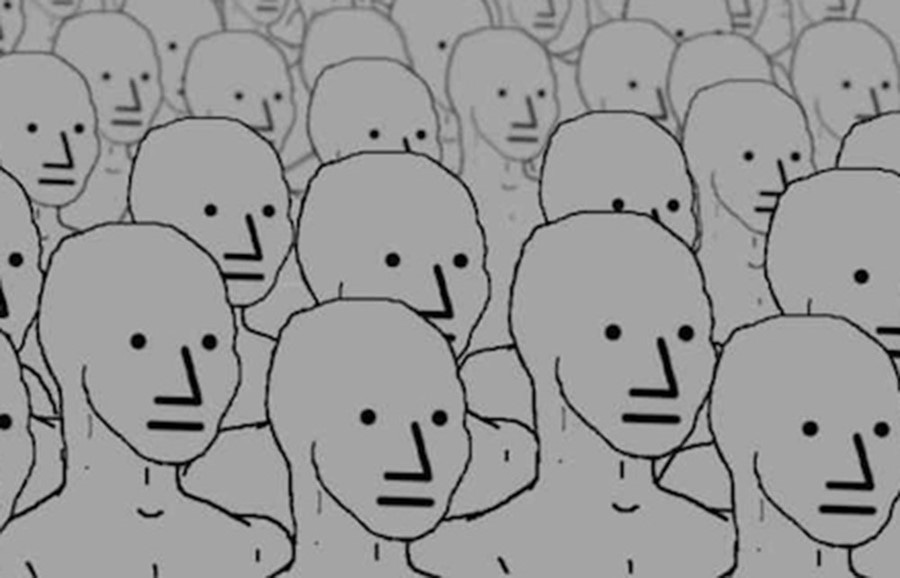The NPC-ification of the Real World
It's easier to believe everyone is fake than to believe everyone is dehumanized.
By Nicholas Russell
Nicholas Russell is a writer from Las Vegas.
You probably know of Tiffany Gomas. The 38 year-old white lady filmed screaming at American Airlines crew about an anonymous “motherfucker” at the back of the plane who she claimed wasn’t real. Gomas’s meltdown, which went viral and for which she subsequently apologized, is standard fare for the TMZ crowd, but it’s what happened after that’s really intriguing: her claims were picked up first as memes then as serious fodder for conversations among right-wing conspiracists about lizard people and life-like decoys that points to a familiar yet even more aggressively-peddled concept of the world as a constructed simulation.
Post-Covid (or post-the few years we cared about Covid), and in the midst of TikTok’s ubiquity as a platform upon which one might fashion the world into a highlight reel, a creeping sense of dislocation has taken over. This sense, in part, takes the form of a distrust of reality as it is experienced by others. Specifically, that other people—complete strangers online, next door neighbors, fellow passengers on public transit, service workers, the unhoused especially—aren’t real. Call it freely accepted conspiratorial thinking. Call it the NPC trend.
Whether due to some milquetoast belief in simulation theory or just a general distaste for other people, it turns anyone outside of one’s subjective experience into a drone. The so-called people at the receiving end of this behavior are, if not exactly fake, almost certainly functioning on shadowy ulterior motives.

